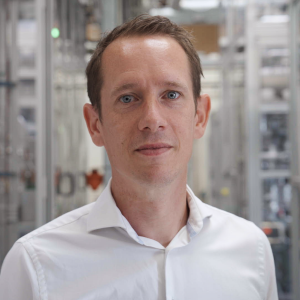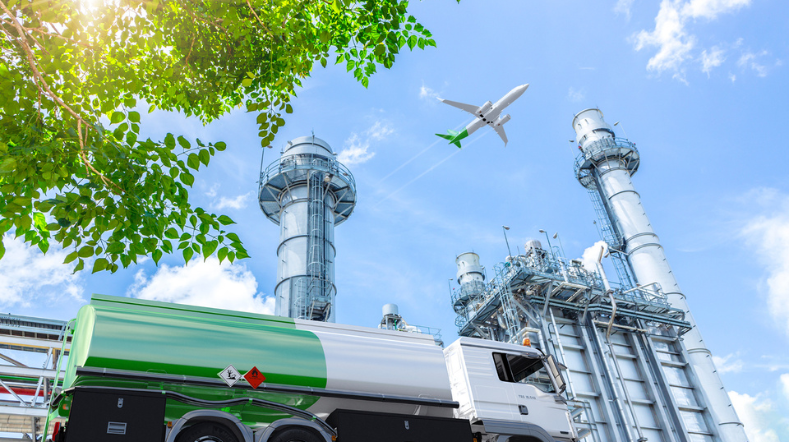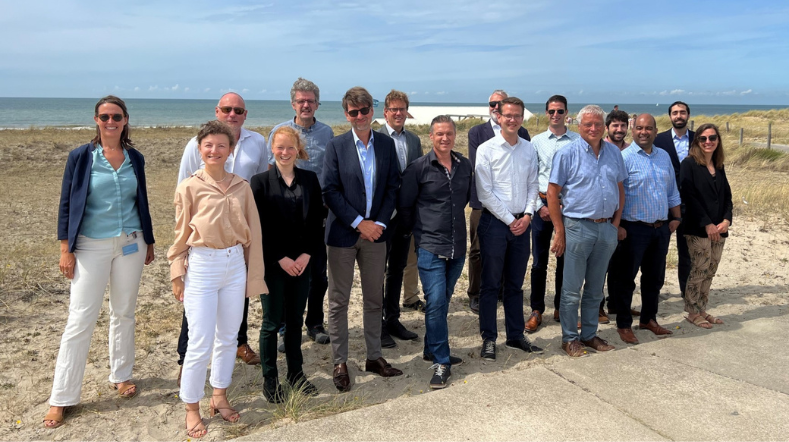
The future of aviation: how biofuels can transform aviation sustainability
Status project
Currently running
In cooperation with
Consortium of 20 European parties with partners in the US, Canada, Brazil, and India
In order to make aviation greener, numerous initiatives are underway worldwide to develop sustainable aviation fuels (SAF). TNO is contributing to the European project Icarus, which is working on these clean fuels along three different routes. Technologically, these are large and complex challenges. As the requirements for aviation fuel composition are regulated globally, the consortium of 20 European parties is working closely with partners in the US, Canada, Brazil, and India.
Joining forces
"To accelerate this development, we as Europe need to exchange knowledge with other major countries. The US wants aviation to use only sustainable fuels by 2050. Brazil is busy developing SAFs. Canada and India are potentially major suppliers of agricultural waste streams needed to make sustainable biofuels. We as the EU are therefore joining forces with partners from science and industry in these countries. We’re identifying what’s happening in this area around the world and looking at how we can learn from each other," says TNO expert Berend Vreugdenhil.
Three routes
Icarus is exploring three routes leading to the affordable production of sustainable aviation fuel. The first is to make bio-oil through hydrothermal liquefaction – liquefying biogenic waste through heating – and reprocessing it into aviation fuel. One of the obstacles in this process is that the raw materials used often contain nitrogen. The technological challenge here is to remove this nitrogen, in order also to reduce costs throughout the value chain.
The second route involves using micro-organisms to make butanol from lignocellulose (woody biomass) and process it further. The third way is gasification of biomass through the Fischer-Tropsch technology, which was once devised for the use of fossil fuels. Using this technique with biomass as feedstock makes it difficult to operate on a large scale and thus profitably.

"In the process that we envisage, no major investments are needed to upgrade biomass into aviation biofuels. Over time, we should have plants around the world that produce aviation fuels at a sufficiently large scale, at acceptable costs."
Economy of scale
"All three routes are needed, as demand for aviation fuels remains as high as ever. Economy of scale is the usual route to producing more and also more cheaply, but this is not that well aligned to the local availability of biogenic streams. Therefore, these three routes should be developed to achieve this alignment. In the gasification route, for example, we need to develop a catalyst that enables us to make only liquids and not long chains, as is common with Fischer-Tropsch. In this way, you also avoid the formation of wax, for which you need to make an additional investment in order to crack it back to a liquid product. Hence the name Icarus for this project, after the mythological figure who, despite warnings, flew too close to the sun, so that the wax between the wood and feathers of his wings melted and he crashed. In the process that we envisage, no major investments are needed to upgrade biomass into aviation biofuels. Over time, we should have plants around the world that produce aviation fuels at a sufficiently large scale, at acceptable costs."
Strict regulations
For now, sustainable aviation fuels are the only alternative for greening aviation. Flying on electricity or hydrogen, especially for intercontinental flights, lies far in the future. Moreover, the aircraft fleet cannot be written off overnight. However, the regulations for the composition of these fuels are very detailed. They must contain aromatics, such as benzene, for engines to work properly. Sulphur is also indispensable for lubrication. Aviation fuel is not a single molecule like methanol, but a mixture of molecules due to the prescribed specifications.
"That’s what makes developing green fuels for this sector so complex. And that’s also why we’re focusing on several different routes. Benzene causes soot formation, and sulphur causes SO emissions. But you cannot simply replace or omit these substances."
Global approach
A new type of catalyst is being developed at our biofuels lab in Petten. Catalysts will also be supplied through partners from Brazil and Canada, which will be used in experiments. One of the partners, the University of the Basque Country, is seconding an employee to the TNO lab for this purpose. The US partners are making contributions to modelling the system and are members of the External Executive Advisory Board.
"Each of the partners on the various continents has its own knowledge and research questions. By bringing these together, we can really accelerate development. The great thing is that we’re now travelling along three routes simultaneously. That’s bound to generate synergy. We’re tackling a global problem globally. This makes Icarus a unique partnership."
Get inspired
Local, circular, and biobased: towards the textile industry of the future with HEREWEAR


Renewable fuels


TNO develops method to produce biocarbon


New technology combines biocarbon production for industry with negative emissions

Producing renewable DME using renewable energy and CO2


